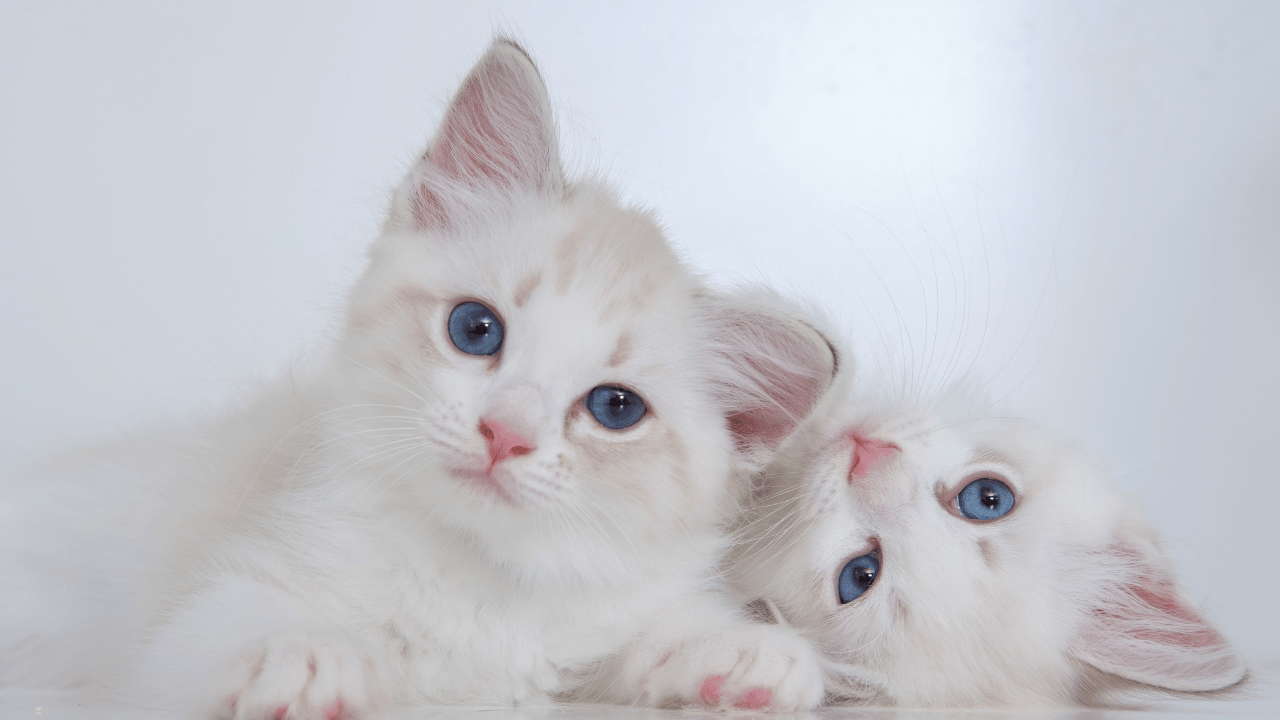Should Kittens Wear Collars? One of the choices we confront concerning our feline buddies – particularly sweet small kittens getting into your dwelling house for various motives – is whether or not to place a collar on them. When it comes to kitten collars, most of the debate surrounding them has to do with safety issues as opposed to any advantages they might provide. Here we will break down the concept of both to make a rational choice. We all know how cute and playful 8-week-old kittens can be, but for pet owners, the safety of their animals always comes first. And nothing protects them like a collar.
Should Kittens Wear Collars?
Identification:
Collars are often the means to display I.D. tags. It is vital if, by any means, your little cat hops out. A collar with your name and number certainly increases the odds.
Safety:
If a kitten lives in a household with multiple pets or has access to the outdoors, wearing a collar will help it be quickly distinguished. This is especially great for households with doors leading outside, where you will live with the idea of an accidental escape. Health Monitoring: Certain collars can carry a tiny GPS tracker. In contrast, others are equipped with microchip identification tags so that if your kitten were lost, you could easily redirect it.
Training and Control:
Some collars, e.g., may help you train your kitten to walk on a leash or discourage undesired behaviours
Community Awareness:
People are less likely to unintentionally take in a kitten with a collar, believing it is lost (or abandoned) when they see that the cat has owners and bring it back home safe from strangers.
Training Purposes:
Bell Collars:
These have small spherical bead-shaped bells on them. Yes, this is to get an idea of where your kitten may be in the house. It also warns birds and tiny animals, making a racket and letting the wildlife know there is an enemy JoJo or Agneka in their mist.

Use for Behavioural Training: Should Kittens Wear Collars?
Collars are great for teaching kitties to walk on the leash, and this is especially helpful if you plan to take your cat outside on supervised outings.
Medical Purposes
Medical Tags:
Besides I.D., cat clothes can include tags listing vital medical information such as allergies or chronic diseases. This information can be vital during emergencies that require immediate medical attention.
Should Kittens Wear Collars: Potential Concerns
Safety Hazards:
Collars are a big concern for the safety of young kittens, as there is always an increased risk of strangulation. Collars must always have a quick-release mechanism or be designed to break away so that if your kitten gets caught somewhere, there is no danger of choking.
Comfort:
A collar the wrong size or made with harsh materials can irritate and even harm soft kitten skin. When collaring a puppy, it is important to choose soft and lightweight materials.
Allergic Reactions
For kittens that are sensitive to the materials in collars, monitor for any signs of irritation or allergic reactions and use hypoallergenic collars if needed.
Outdoor or Indoor Gymnasium Thoughts: Should Kittens Wear Collars
Indoor Kittens—if your kitten is an indoor-only cat, the need for a collar may not be as immediate. Nonetheless, it may also help establish an identity and be helpful in the event of accidental release.
Outdoor Kittens:
If your kitten will be outside unsupervised, identification becomes critical, including the cat’s collar if it has outdoor or loose walking privileges. Outdoor kittens should also have reflective collars to make them more visible at night.

Should Kittens Wear Collar: Selection and Usage Tips
Fit:
The collar should fit snugly but comfortably. Your kitten should fit two fingers between the collar and its neck.
Safety Features:
Ensure the collar is equipped with a breakaway or quick-release feature to prevent the leash from choking.
Material:
Choose a material made from soft, lightweight materials to decrease irritation and injury.
Check the Collar:
Periodically inspect the collar for fit and any signs of tear. Change it whenever it becomes frayed or harmful.
Important:
When putting a collar on them the first time, your kitten should be in cuffs and supervised.
Conclusion
Although putting a collar on your kitten requires some thought due to the benefits and concerns, another way most pet owners feel that one outweighs the other. The perfect kitten clothes are an essential addition to the family for your new furry friend, providing not only peace of mind with identification, etc. but also some ability to keep the kitty safe and sound. But above all, you should care about the safety and comfort of your kitten. Making the right choice of a collar and introducing it will enable your kitten to benefit from wearing one without any health risks. Be alert for signs of emotional distress in your kitten and adapt accordingly so you both have a delightful experience.

